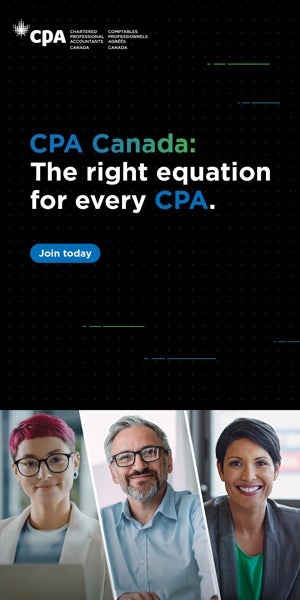How millennials are shaping the future of accounting

In the third of a three-part series, a look to the future of Canadian accounting
TORONTO, September 17, 2018 – The multi-generational accounting firm is a reality for many Canadian accountants in public practice. In this, the third part of our three-part series on age diversity, its tensions and opportunities, we look at millennials and their influence in firms from the Big Four to small and medium-size practices.
There are now five generations of Canadians in the workforce, including the accounting profession: traditionalists, baby boomers, Generation X, millennials (Generation Y), and Generation Z, now entering the Chartered Professional Accountant professional education program (CPA PEP).
Norma Kraay, managing partner of talent at Deloitte Canada in Toronto, believes millennials are helping to shape the accounting profession of the future as a result of their more collaborative, inclusive approach to problem solving. It’s already evident today, as firms rely more on teamwork than they did in past years, rather than the traditional “top-down” approach of traditional accounting heirarchies.
This type of collaboration, along with the use of technology and analytics to assess information, offers multiple benefits to the entire firm. It facilitates working with the pace of change to adapt solutions with a more open mind. It also utilizes various working styles, enriched with ideas from different sources and generations, to arrive at a more enhanced solution, Kraay says.
“I think organizations can really capitalize on these inter-generational values, bringing together the best of every generation into a really integrated solution,” she adds.
Changing times, changing values
Chartered Professional Accountant Jason Kingston says having a diversity of age groups is a positive at DSK LLP in Kitchener. “We’ve not run into any of the millennial clichés that you read about,” he says, noting that the younger employees work as hard as everybody else in the firm, including putting in overtime. “When needed, they’re killing themselves. They’re putting the effort in,” Kingston praises.
“Of course, during tax season, we’re like any firm. It’s like ‘be here, unless it’s an emergency.’ But they all get that, and there’s no big deal,” he says, adding that DSK is otherwise flexible with vacation and personal time.
Kingston notes that the younger generation expects more of a work-life balance, while the Gen Xers and especially the baby boomers were raised during an era when, in the accounting profession, it was necessary to article at a big firm where people would be working significant overtime for a small salary to get their apprenticing time in.
“Everyone just understood that’s what you had to do,” explains Kingston. “But that is no longer on the table. I don’t think younger professionals would put up with that and I honestly don’t blame them. If anything, they’re maybe making the whole profession have to take a look at itself, and not just give lip service to work-life balance but actually have to provide it — which is good for all of us,” says Kingston.
Millennials understand disruptive technology
Technology will be the biggest driver of the accounting profession in the future, and the younger generations understand technology, such as cloud-based and mobile applications, and where it is going, says Kingston.
Dawn McGeachy, a partner with Colby McGeachy Professional Corporation in Almonte, Ont., also believes the accounting profession will change as the millennial generation comes of age and more of its members rise to dominance as the firms’ senior partners. One area she expects to change is the number of partners.
Whereas traditionally there were probably three or four main partners running a small to medium sized practice, McGeachy predicts a larger number will be required in future because millennials will not want to commit the same amount of time to the office as today’s partners.
“They’re not going to want to work 3,000 hours a year. I think those days are gone,” she says.
But, she says, “I also think that they will be much more adaptive to change. We have so many things coming down the pike, whether it’s cryptocurrency, or blockchain, or AI, and they’re going to be willing and unafraid to figure out what those things mean for the profession, and get on board. They’re going to be part of the solution,” McGeachy adds.
Ready for the future
As the millennial generation becomes more dominant in numbers and seniority, Stephen Shea, managing partner of talent at EY Canada in Toronto, believes they will bring creativity and interest to the profession, like all generations before them have.
“Who knows what the regulatory environment will be for the accounting and auditing profession in the future? Who knows what technology and blockchain will do? What we do know is it will change. We just don’t know how.
“I fully believe the profession attracts highly talented people from the business schools. And if we as firms make sure that we embrace being agile and innovative, they will be able to drive the profession forward and make sure that it stays relevant to business and the world that they live in, in the future,” he stresses.
Jeff Buckstein, CPA, CGA, is an Ottawa-based business journalist.











(0) Comments